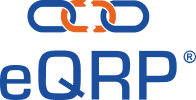The Basics of Becoming Accredited and Why it Matters

Does it matter if you’re accredited? Well, it depends on where you want to invest your money.
Most are familiar with “traditional” options for how to invest. Think about what your financial advisor would say to you… “Here’s a blue chip mutual fund we have access to (so does everyone else by the way).” Or maybe instead of working with an advisor, you utilize a platform like Robinhood to make investments on your own.
But – there’s more out there than meets the eye when it comes to allowing your investable dollars to work for you. Investing in syndications, private equity, and other alternative investments like startups can be an exciting way to diversify your portfolio and potentially earn significant returns.
However, not everyone is allowed to participate in these opportunities. To access certain investment opportunities, you must be an accredited investor. Let’s explore what makes an investor accredited and the significance of this status.
What Is an Accredited Investor?
An accredited investor is an individual or entity that meets specific financial thresholds and qualifications set by regulatory bodies, such as the United States Securities and Exchange Commission (SEC).
Accredited status grants you access to investments that are typically not available to the general public. These investments often require a more significant capital commitment than is required for mutual funds, stock, etc., and also may lack the same level of regulatory oversight as publicly traded securities. These are the primary reasons why there are strict criteria set to reach accredited status.
For example, many syndication opportunities require a minimum investment of $100,000. It wouldn’t typically be advisable for an individual with a $100,000 net worth to commit 100% of their funds to a single investment opportunity. If that syndication were to experience problems, it would be extremely detrimental to the financial well-being of that individual.
But, if that $100,000 investment were only 10% of an individual’s net worth, the reward of potentially greater returns can be worth the additional risk of committing a significant amount of capital to that one opportunity.
Criteria for Individual Accredited Investors
There are 3 options for an individual to become accredited: Income, Net Worth, or through Professional Designation.
To qualify as an accredited investor based on income, an individual must have earned an annual income of at least $200,000 (or $300,000 when combined with their spouse) for the past two consecutive years, with a reasonable expectation of reaching the same income level in the current year.
An individual can also qualify as an accredited investor by demonstrating a net worth of at least $1 million, excluding the value of their primary residence. This net worth threshold is designed to measure an individual’s ability to absorb potential investment losses.
Certain professional designations, such as Certified Public Accountants (CPAs), Chartered Financial Analysts (CFAs), or Certified Financial Planners (CFPs), may also grant accredited investor status.
Why is Accredited Status Important?
Accredited investors can gain access to a broader range of investment opportunities, including private equity, hedge funds, venture capital, and syndications. These investments often have the potential for higher returns but can come with increased risk.
Accredited investors are presumed to have a higher level of financial sophistication and risk tolerance, making them more suitable for investments with less regulatory oversight and could have more potential volatility. However, by expanding their investment options beyond traditional stocks and bonds, accredited investors can achieve more portfolio diversification, which can help reduce overall risk.
On top of that diversification advantage, understanding how to go about vetting an opportunity often gives savvy investors even more confidence that their investment choice can withstand hard times when compared to the all-to-often volatile Wall Street rollercoaster.
This is why it’s important for accredited investors to educate themselves on how to conduct due diligence on the investments that they are choosing to participate in. Accredited investor status may offer exciting prospects, but it also comes with the responsibility of making informed investment decisions.
Download The QRP Book Summary
Learn how to take action to help you reach financial freedom!
Fill out the form below so I can email this to you right now!
Feeling lost with how to unlock your 401 (k)?
Get my FREE book on how to take checkbook control of your 401 (k) and IRA to help you have financial freedom.
Fill out the form below so I can FedEx you the book right away!




